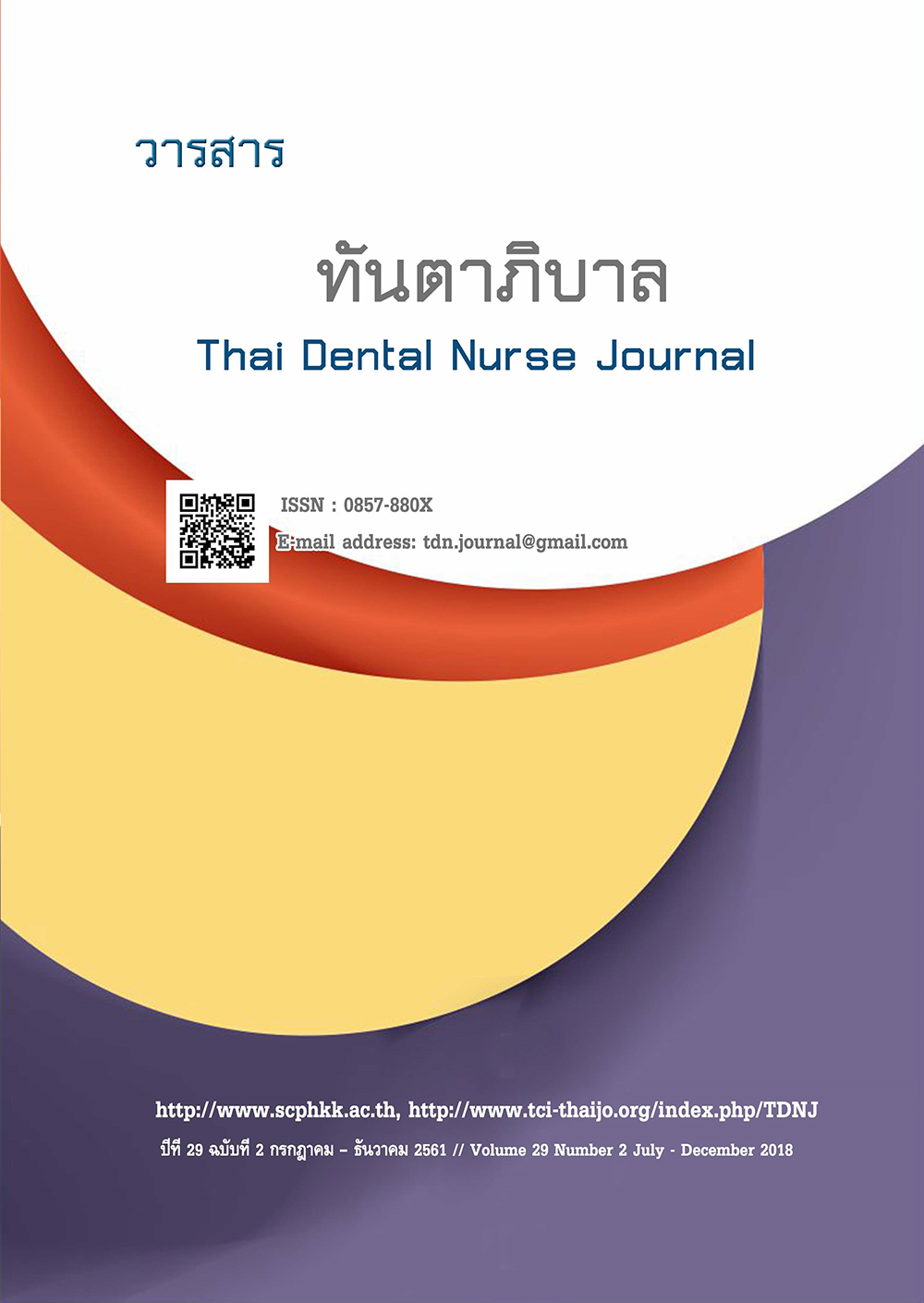Problem based learning for the second year students in the Bachelor program of Community Public health, Sirindhorn College of Public Health, Khon Kaen Province
Keywords:
nutrition, Problem-based learning (PBL),, Classroom Action Research (CAR)Abstract
This research was the Classroom Action Research (CAR) using problem-based learning (PBL). The purposes of this study were: 1) to investigate the achievement of Nutrition subject by using PBL for the second year students in the Bachelor program of Community Public Health, and 2) to examine instructors and students’ opinions when using PBL in the classroom. Step of PBL included: Phase1 (step1-clarify terms and concepts , step2-define the problem, step3- analyze the problem, step4 - draw a systematic inventory of the explanations inferred from step3 and step5 - formulate learning objectives; Phase2 (step6-collect additional information outside the group) and Phase3 (step7- synthesize and test the newly acquired information). The content validity of measurement instrument was between 0.67 to 1.00 and the reliability represented by Cronbach’s alpha coefficient was 0.83. The quantitative data were analyzed by using frequency, percentage, mean, standard deviation and independent t-test whereas the qualitative data were analyzed by using content analysis.
The result showed that the mean achievement score in Nutrition subject was 78.92 (SD= 3.90). The mean score of PBL class was more than the conventional learning class at 5.28 (95% CI of Mean difference was between 3.59 and 6.97 of the scores). The instructors and students’ opinions towards PBL, in general, was in a high level ( =3.72, SD=0.81 and =3.85, SD=0.80 respectively). The instructors’ opinions towards participation as a group and learner’s behavior were at a high level ( =4.30, SD=0.73 and =4.27, SD=0.71, respectively). From the instructors’ point of view, it was reported that PBL was the reinforcement for learners as in building new knowledge from the problems facing in real life situations, learning by themselves, learning and working as a team, exchanging knowledge and being confident in a discussion group. As for the students’ views, it created teamwork among the students, participation in solving the problems, unity and democracy, communication skills and solving the conflicts. Moreover, students leant to be more enthusiastic, responsible and open-minded. Additionally, it led the students to be critical, synthetic, creative and reasonable; the students also learned with understanding and memorized more ideas and contents.
References
2. วิจารณ์ พานิช. วิถีสร้างการเรียนรู้เพื่อศิษย์ในศตวรรษที่ 21. กรุงเทพฯ: บริษัท ตถาตาพับลิเคชั่น จำกัด, 2555.
3. ธรรมรักษ์ การพิศิษฎ์. การปฏิรูปการเรียนรู้ที่เน้นผู้เรียนเป็นสำคัญในระดับอุดมศึกษา :กรณีศึกษาการเรียนการสอนสาขาวิชาสังคมศาสตร์.พิมพ์ครั้งที่ 1. กรุงเทพฯ : บริษัทพิมพ์ดีจำกัด, 2544.
4. ศิริพันธุ์ ศิริพันธุ์ และ ยุพาวรรณ ศรีสวัสดิ์.การจัดการเรียนการสอนที่เน้นผู้เรียนเป็นสำคัญ : วิธีการสอนแบบใช้ปัญหาเป็นหลัก(Student Center : Problem- Based Learning). วารสาร มหาวิทยาลัยนราธิวาสราชนครินทร์. ปีที่ 3 ฉบับที่ 1.หน้าที่ 104-112. มกราคม – เมษายน 2554.
5. กนกวรรณ ศรีนรจันทร์.การพัฒนากิจกรรมการเรียนรู้แบบใช้ปัญหาเป็นฐาน รายวิชาสังคมศึกษา ส 22101 หน่วยการเรียนรู้เรื่องเศรษฐกิจพอเพียงกับการผลิตสินค้าและบริการของนักเรียนชั้นมัธยมศึกษาปีที่ 2. วิทยานิพนธ์ปริญญาศึกษาศาสตรมหาบัณฑิต สาขาวิชาหลักสูตรและการสอนบัณฑิตวิทยาลัย มหาวิทยาลัยขอนแก่น, 2555.
6. McMaster University.8th International Interdisciplinary Summer Institute : Health Science Education. Global Health Office ,Faculty of Health Science McMaster University, 2014.
7. Walsh, A. The tutor in Problem based Learning - A Novice’s Guide. Hamilton. ,ON Program for Faculty Department, McMaster University, Faculty of Health Sciences ;Canada., 2005.
8. วัลลี สัตยาศัย. การเรียนรู้โดยใช้ปัญหาเป็นหลักรูปแบบการเรียนรู้โดยผู้เรียนเป็นศูนย์กลาง.กรุงเทพฯ : บริษัท บุ๊คเน็ท จำกัด, 2547.
9. สัมพันธ์ พันธุ์พฤกษ์. คู่มือวิจัยสาธารณสุขระดับอำเภอ. ขอนแก่น; หจก. ขอนแก่นการพิมพ์, 2542.
10. Candela, L. L.Problem Based Learning versus Lecture : Effects on Multiple Choice Test Scores in Associate Degree Nursing Student . Doctor of Education , Faculty of the school of Education , University of Southern California; 1998.
11. Zhang, W. Problem Based Learning in Nursing Education .Hindawi Publishing Corporation Advances in Nursing 2014, Article ID 125707 :1-5 [cited 2017 Nov 20]. Available from:.https://www.hindawi.com/journals/anurs/2014/125707/
12. บุญนา อินทนนท์. การศึกษาผลสัมฤทธิ์ทางการเรียนวิทยาศาสตร์และความสามารถในการแก้ปัญหาทางวิทยาศาสตร์ของนักเรียนชั้นมัธยมศึกษาปีที่ 3 โรงเรียนโยธินบารุงที่ได้รับการจัดการเรียนรู้โดยใช้ปัญหาเป็นฐานและการจัดการเรียนรู้แบบสืบเสาะหาความรู้.ปริญญานิพนธ์การศึกษามหาบัณฑิตสาขาวิชาการมัธยมศึกษาบัณฑิตวิทยาลัยมหาวิทยาลัยศรีนครินทรวิโรฒ; 2551.
13. วิภาดา สันติประสิทธิ์กุล กาญจนี สิทธิวงศ์ และ อรทัย ผลเนืองมา. ผลสัมฤทธิ์ทางการเรียนและการคิดอย่างมีวิจารณญาณด้วยกระบวนการเรียนแบบใช้ปัญหาเป็นหลัก ของนักศึกษาพยาบาลชั้นปีที่1. วารสารพยาบาลศาสตร์ จุฬาลงกรณ์มหาวิทยาลัย 2555; 24 (2):104 – 116.
14. ณัฐภาส ถาวรวงษ์. การประเมินการจัดการเรียนการสอนโดยใช้ปัญหาเป็นหลัก (PBL) ของรายวิชาพรีคลินิกหลักสูตรแพทยศาสตรบัณฑิตคณะแพทยศาสตร์มหาวิทยาลัยศรีนครินทรวิโรฒ. วิทยานิพนธ์ปริญญาการศึกษามหาบัณฑิตสาขาวิชาการวิจัยและสถิติทางการศึกษา บัณฑิตวิทยาลัย มหาวิทยาลัยศรีนครินทรวิโรฒ; 2551.
15. จิราภรณ์แม็คกลาเดอร์รี่. การใช้การเรียนรู้ที่เน้นปัญหาเป็นฐานเพื่อส่งเสริมทักษะการเขียนภาษาอังกฤษและการคิดอย่างมีวิจารณญาณของนักเรียนชั้นมัธยมศึกษาปีที่ 4. ศึกษาศาสตรมหาบัณฑิตสาขาการสอนภาษาอังกฤษ บัณฑิตวิทยาลัย มหาวิทยาลัยมหิดล; 2554.
Downloads
Published
Issue
Section
License
บทความที่ได้รับการตีพิมพ์ถือเป็นลิขสิทธิ์ของวารสารทันตาภิบาล





